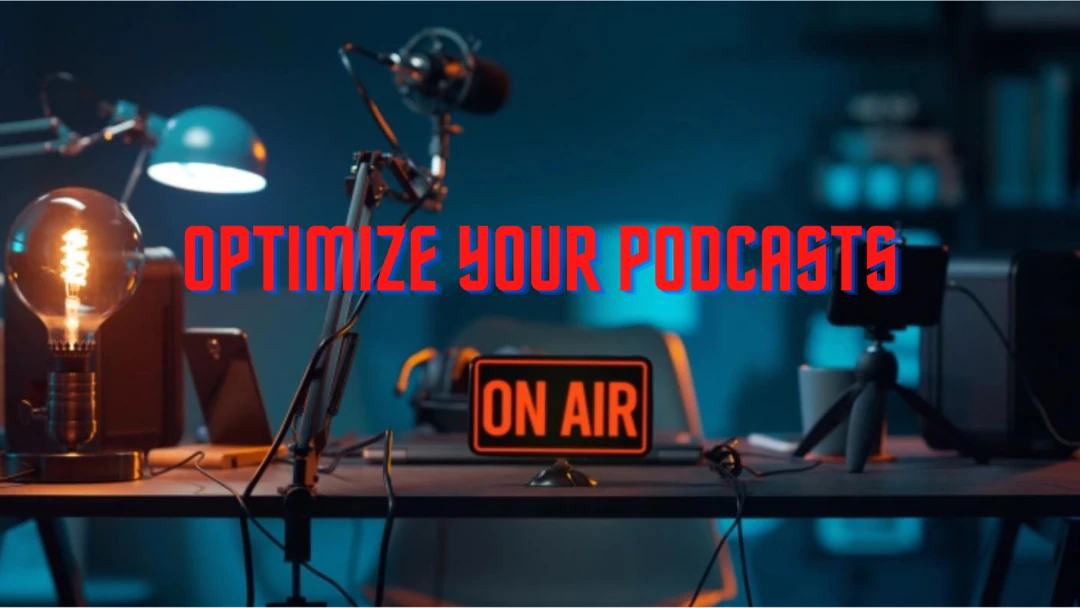In 2019, Google recognized the vast growth of podcasts and decided not to miss out. So naturally, optimization gurus immediately studied the net effect of the move.
SEO for podcasts was born almost while Google began indexing podcasts seriously. While not everyone is aware of it, podcasts are still a content format, meaning podcast SEO is essential for ranking new content from this side of the internet. Therefore, SEO podcast should be part of any host’s comprehensive marketing plan.
Google wanted more people to use the search engine even when looking for videos and podcasts.
Google’s parent company decided to modify its search algorithms. They devised a system for ranking and surfacing podcasts. You might spot Google’s technique of pulling information from specific episodes depending on what you search for and how detailed the query is. This demonstrates that they can automatically read and rank audio files.
This shouldn’t surprise them, given that they’ve possessed this technology for years. Remember – Google has been using the same technology to figure out the actual content of a video. But here’s the thing: simply making a podcast and releasing it won’t generate much search traffic.
Why is Podcast SEO Important?
SEO involves achieving the highest possible ranking for your site, page, or content in search engine results.
Google processes roughly 63,000 queries each second, which accounts for 92% of all internet searches globally. This is a tremendous potential for businesses of all types to acquire new consumers, but first, they must find you.
iTunes included about 30 million podcast episodes as of June.
Podcasts and other kinds of audio material were not considered natural SEO assets until recently. Instead, podcasting was more of a tool to advertise your skills and network within your business.
SEO for podcasts increases exposure potential and improves search for potential listeners.
Google has discussed making audio searchable several times in recent years. Google revealed back in 2019 that they’ve begun indexing podcasts. Podcasts have been appearing in SERPs for years now. In addition, YouTube videos have been included in the organic SERPs for some time. Below are some vital podcast stats related to marketability and value to listeners:
- The most popular podcast listening sites are Spotify and Apple Podcasts.
- Most podcast listeners tune in to gain new knowledge.
- Comedy is the most popular podcast genre.
- The most common devices for listening to podcasts are portable devices.
- About 82.4% of podcast listeners devote more than seven hours weekly to podcasts.
- 200+ million Americans have heard of podcasts.
- Slightly more than half of listeners claim to listen to the entire episode.
- The most lucrative podcast in 2019 earned $30 million.
- The 20–40-minute podcast category is the biggest.
- Apple’s podcast download statistics indicate that 50 billion episodes were downloaded or watched a few years ago.
- 40% of listeners find new podcasts using their listening applications.
- 51,1% of podcast listeners prefer to listen to podcasts with professional audio quality.
- Seventy-three percent of weekly podcast listeners in the United States listen to podcasts on their cell phones.
- 46% of podcast listeners in the United States are women.
- 47% of monthly listeners in the United States are 12-34 years old.
- Most podcast listeners in the United States are Caucasian (59 percent ).
- More than 50% of listeners have purchased a product after hearing about it in a podcast.
- In the United States, podcast advertising earnings are predicted to top $2 billion by 2023.
- Health and wellness companies spend the most on podcast advertising in the United States.
- The United States is not the country with the most considerable podcast following – the award goes to South Korea.
How Can You Increase Podcast Traffic with SEO for Podcasts?
Step 1: Choose Your Topics Wisely
Podcasting is a lot like blogging.
If you produce a blog post on a topic that no one is interested in, you will not receive much traffic from social media or search engines. It’s not much different when applying podcast SEO to your podcast.
The same holds for podcasts. If you have an episode on an uninteresting topic, you will not receive many downloads (or listens), and you will also receive very little SEO traffic. You won’t always be able to create a hit with every podcast you broadcast, but there is an easy technique to enhance your success rate.
Step 2: SEO Podcast Requires Keywords Properly
Keep in mind that Google can understand your audio and is aware of the subjects and terms you’re discussing.
Therefore, when you include a keyword in your podcast, your episode will likely rank for that keyword or phrase. Look for keywords with a respectable number of monthly searches and little competition when conducting research. Keyword tools can help estimate monthly search volumes for different search terms.
Most tools display the competitiveness of a term using a traffic light scheme (where red is hard and green is easy).
You will also see additional ideas associated with the keyword you’re looking for; examine each proposal to determine which offers the most excellent combination of relevance, monthly searches, and competitiveness.
Step 3: Apply Research from SEO for Podcasts to Episode Metadata
Keyword stuffing is never a necessity. You don’t have to mention a keyword 100 times or do anything insane. Instead, mention it when it is natural to do so. Titles of episodes that contain common keywords tend to perform better; conduct keyword research and add the appropriate keywords in your title.
Episode titles that contain questions do well; in the future, these episodes will perform even better, as intelligent assistants like Alexa and Google Home will begin to pull from podcasts in response to user queries.
More than fifty percent of queries are voice searches. Most of these are questions, so addressing them in your podcast or tagging your titles with question-based terms is an excellent strategy to increase traffic.
Step 4: Integrate Podcast SEO Data into All Future Episodes
Google Podcasts transcribes podcasts to comprehend the content and determine if a particular podcast episode is related to a search query or inquiry. As with any content, the objective of podcast SEO is to provide highly relevant, educational, and valuable information.
When assembling content for your podcast episodes, you should:
- Ensure that your episode has a clear structure and flow.
- Create short, detailed, attractive titles to get more listeners.
- Include relevant keywords when applicable.
You must plan your information and consider how the format and questions can maintain a clear, consistent, and logical flow, much like you would while writing a blog. This improves the listening experience, promotes credibility, and makes it easier for search engines to understand your material.




